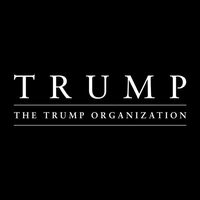Corporate Reputation in the Crosshairs: A Tale of Two Polls
May 25, 2024, 9:41 am
In a world where every move a company makes is scrutinized, the battle for corporate reputation is more intense than ever. The recent Axios/Harris Poll 100 rankings shed light on the impact of wading into the culture wars, showing that while the effects may not be permanent, they can still leave a lasting mark. Companies like Anheuser-Busch InBev and Target saw minimal declines in their reputation scores, while Disney is already showing signs of recovery.
The survey, which polled over 6,000 Americans, revealed that the number of companies with an "excellent" reputation rating is at its lowest in over a decade. Corporate reputation across all sectors is three times more likely to decline than improve, highlighting the challenges companies face in winning favor with consumers.
The political divide is also evident, with companies like AB InBev and Target facing backlash from different ends of the spectrum. Despite the partisan tensions, companies like Disney are making strides in repairing their reputation, showing that recovery is possible even in the face of controversy.
On the other hand, the latest rankings from the annual Axios/Harris Poll 100 paint a different picture. Traditionally conservative-leaning brands like Hobby Lobby, the Trump Organization, and Fox saw gains in their reputation scores, thanks to growing trust from independents and some Democrats. The data suggests that Americans, fatigued by inflation and cultural controversies, are holding companies to a higher standard this year.
The survey revealed that nearly two-thirds of companies saw their reputation scores decline, with factors like inflation, poor ethical behavior, and a focus on cultural issues contributing to the negative perceptions. Republicans, independents, and older Americans were more likely to drive the sense of decline, while Democrats and younger Americans were less critical.
The data also showed a shift towards right-leaning companies in terms of trust and shared values among Democrats and independents. Companies like the Trump Organization and Hobby Lobby gained trust from both groups, indicating a changing landscape in consumer perceptions.
However, not all conservative-leaning companies are riding the red wave. Exxon and Dollar Tree saw declines in their reputation scores, highlighting the complexity of the corporate reputation battle.
In conclusion, the two polls offer a nuanced view of the corporate reputation landscape in the USA. Companies must navigate the delicate balance between cultural commentary and operational excellence to maintain their standing in the eyes of consumers. As the battle for reputation rages on, only time will tell which companies will emerge victorious in the eyes of the American public.
The survey, which polled over 6,000 Americans, revealed that the number of companies with an "excellent" reputation rating is at its lowest in over a decade. Corporate reputation across all sectors is three times more likely to decline than improve, highlighting the challenges companies face in winning favor with consumers.
The political divide is also evident, with companies like AB InBev and Target facing backlash from different ends of the spectrum. Despite the partisan tensions, companies like Disney are making strides in repairing their reputation, showing that recovery is possible even in the face of controversy.
On the other hand, the latest rankings from the annual Axios/Harris Poll 100 paint a different picture. Traditionally conservative-leaning brands like Hobby Lobby, the Trump Organization, and Fox saw gains in their reputation scores, thanks to growing trust from independents and some Democrats. The data suggests that Americans, fatigued by inflation and cultural controversies, are holding companies to a higher standard this year.
The survey revealed that nearly two-thirds of companies saw their reputation scores decline, with factors like inflation, poor ethical behavior, and a focus on cultural issues contributing to the negative perceptions. Republicans, independents, and older Americans were more likely to drive the sense of decline, while Democrats and younger Americans were less critical.
The data also showed a shift towards right-leaning companies in terms of trust and shared values among Democrats and independents. Companies like the Trump Organization and Hobby Lobby gained trust from both groups, indicating a changing landscape in consumer perceptions.
However, not all conservative-leaning companies are riding the red wave. Exxon and Dollar Tree saw declines in their reputation scores, highlighting the complexity of the corporate reputation battle.
In conclusion, the two polls offer a nuanced view of the corporate reputation landscape in the USA. Companies must navigate the delicate balance between cultural commentary and operational excellence to maintain their standing in the eyes of consumers. As the battle for reputation rages on, only time will tell which companies will emerge victorious in the eyes of the American public.

